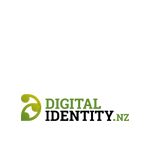Kia ora,
Matariki is a time for remembrance, celebration, and looking toward the future. Traditionally, Matariki was a time to honour ancestors, celebrate the harvest, and acknowledge the changing seasons.
Today, we stand at a pivotal moment where two transformative technologies – digital identity and artificial intelligence – are reshaping the fabric of society. As the marginal cost of knowledge approaches zero, decentralised systems offer abundance creation through co-operation, as opposed to sticking with a more traditional scarcity-based approach.
For DINZ members, the adoption playbook demands conscious choices: about focus, trade-offs, standards, and sovereignty. As local momentum builds around the world’s first decentralised credential identity ecosystem, the question is no longer whether disruption will occur – but how we collectively shape it, and who it serves. Perhaps Moby put it best in his 2002 song “We are all made of stars.”
It is hard to believe we are still using multi-password sign-on and facsimiles of identity proofs in an era where nearly everything we do is online. For those frustrated by the pace of change, it is important to remember we’re building a system for 30 years, of which the past five years has been very much design and build. The next five years will be about driving adoption.
With a tsunami of digital credentials hitting global markets, the race to be “first to issue” DISTF accredited credentials is on! At the starting line are the DIA, NZTA, Air NZ, Hospitality NZ, alongside other go-to-market models such as Apple and Google’s online proxies.
Techweek Highlights
Those fortunate enough to attend Digital Public Infrastructure: The Invisible Foundation for NZ’s Digital Future in the General Assembly room in Parliament would have heard Minister Collins deliver the powerful message that “digital identity is the key to unlocking productivity in New Zealand.”
The Minister’s call to action was compelling, raising the question of whether centralised apps are the answer for a citizen-centric experience at this particular technology inflection point still open for debate.
It is encouraging to see a shared understanding that the implementation of digital public infrastructure (DPI) will provide New Zealanders with an inclusive, future-ready trust layer that enhances privacy, security, provenance and fraud prevention, while preserving Aotearoa’s economic sovereignty.
What’s more, an interoperable decentralised identity ecosystem will support the profound productivity improvements presented by hyperscale AI, without diminishing human agency by moving our data (and your soul) into someone else’s “cloud”.
Digital Trust Hui Taumata – Update
We have secured the world’s foremost native digital credential architect and builder James Monaghan to deliver the international keynote and host roundtable discussions at the Digital Trust Hui at Te Papa on 12 August, 2025.
This must-attend identity conference promises to be more “Doey” than Hui. Our valued sponsors will showcase the most exciting identity projects in this space, and show how accelerating adoption of Trust Technology can help mitigate concerns around AI-related risks.
Roundtable discussions are currently being shaped around four key focus areas:
- Regulatory barriers to change (public policy enablers such as omnibus bills to allow digital identity implementation)
- Identity for natural persons (early adopters, Privacy and taking control, proof of age, everyday applications, online verification, ID assurance hierarchy)
- Identity for legal entities (identity as a service, AML, license to operate, compliance, monitoring, directory enabled and real world asset marketplaces)
- Identity for machines (delegation, reputation, agents, bots, agentic commerce)
Assuming sufficient interest from government and industry sponsors, we plan to arrange an ecosystem design workshop with James Monaghan while he is in Wellington.
The Census Goes Digital: A Shift Towards Data-Driven Public Infrastructure
Stats NZ has officially retired the traditional census, opting instead for a new approach that leverages integrated administrative data. This marks a significant shift in how the government collects and uses trusted digital information – reinforcing the need for secure, privacy-preserving identity systems to ensure accuracy, inclusion, and transparency. It’s a timely reminder of the critical role digital identity plays in building smarter, citizen-centric public services. Read the full RNZ article.
Welcome to Our New Chair – Maria Robertson
Please join me in welcoming Maria Robertson as the new Chair of DINZ. You can read her introductory statement to the DINZ community on our website.
As we reset the DINZ playbook and hone our focus to accelerate adoption, Maria has already started to elevate our thinking thanks to her extensive experience across the public service, infrastructure and secondary industries.
Suffice to say, the first few weeks have been a baptism by fire, but I’m thoroughly enjoying being back in the identity services world at such a pivotal time. Your feedback is encouraged as we strive to fan the flames of adoption by issuers, holders and relying parties for the empowerment of all New Zealanders.
Mānawatia a Matariki,
Andy Higgs
Executive Director, Digital Identity NZ
Read full news here: Ready…Reset…Go!






